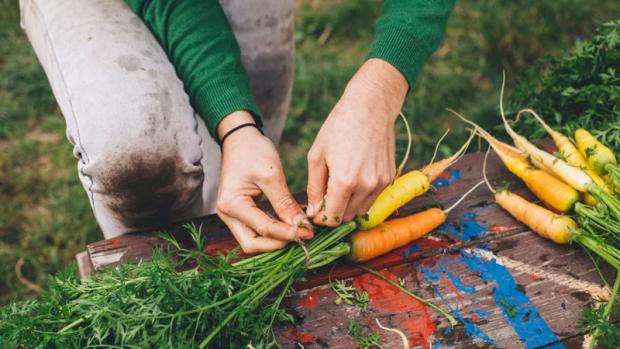
Breaking News
 The Self-Sufficiency Myth No One Talks About
The Self-Sufficiency Myth No One Talks About
 We Investigated The Maui Fires and The Cover-Up is Worse Than We Thought | Redacted
We Investigated The Maui Fires and The Cover-Up is Worse Than We Thought | Redacted
 The Amish Secret to Keeping Pests Out of Your Garden Forever
The Amish Secret to Keeping Pests Out of Your Garden Forever
 Scott Ritter: Full-Scale War as Iran Attacks All U.S. Targets
Scott Ritter: Full-Scale War as Iran Attacks All U.S. Targets
Top Tech News
 US particle accelerators turn nuclear waste into electricity, cut radioactive life by 99.7%
US particle accelerators turn nuclear waste into electricity, cut radioactive life by 99.7%
 Blast Them: A Rutgers Scientist Uses Lasers to Kill Weeds
Blast Them: A Rutgers Scientist Uses Lasers to Kill Weeds
 H100 GPUs that cost $40,000 new are now selling for around $6,000 on eBay, an 85% drop.
H100 GPUs that cost $40,000 new are now selling for around $6,000 on eBay, an 85% drop.
 We finally know exactly why spider silk is stronger than steel.
We finally know exactly why spider silk is stronger than steel.
 She ran out of options at 12. Then her own cells came back to save her.
She ran out of options at 12. Then her own cells came back to save her.
 A cardiovascular revolution is silently unfolding in cardiac intervention labs.
A cardiovascular revolution is silently unfolding in cardiac intervention labs.
 DARPA chooses two to develop insect-size robots for complex jobs like disaster relief...
DARPA chooses two to develop insect-size robots for complex jobs like disaster relief...
 Multimaterial 3D printer builds fully functional electric motor from scratch in hours
Multimaterial 3D printer builds fully functional electric motor from scratch in hours
 WindRunner: The largest cargo aircraft ever to be built, capable of carrying six Chinooks
WindRunner: The largest cargo aircraft ever to be built, capable of carrying six Chinooks
Adaptive Gardening: How to Grow Food When You're Not Fit and Flexible

It gets to be challenging when one factors in various kinds of disabilities, up to and including old age. That's where adaptive gardening comes into play.
I learned about adaptive gardening the hard way.
I remember when my back went out in 2017. I had three slipped disks, two lumbar and one thoracic, one of which liked to hit a nerve when I was sleeping too well. In the first year, getting out of bed was a challenge! That's the year I grabbed a field guide and my plant ID app and learned about my backyard. I had four pitiful pots of salad greens growing and that was it! I did, however, learn a great deal about the bounty I had under my nose. That was the year I joined the chronic pain club thanks to age and occupation-associated lumbar degeneration, and I was determined to continue gardening.
I didn't know at the time that there was a name for this. I simply adapted and adjusted. The name for this kind of gardening is adaptive gardening, and the concept is pretty simple: make small changes in your habits to accommodate your new reality. Simple enough, right?
Also, be mindful of how you think. I worked on a book that year discussing motivational approaches to chronic pain, and the major takeaway was to guard my thinking. Studies quoted showed that people who focused on the pain tended to get worse and do less, whereas people who focused on doing the things they wanted to do were happier and did more. Yes, proper medications help, but I don't allow myself to become dependent, either. I've been able to stick with OTC meds and add things like CBD.

 RNA Crop Spray: Should We Be Worried?
RNA Crop Spray: Should We Be Worried?

